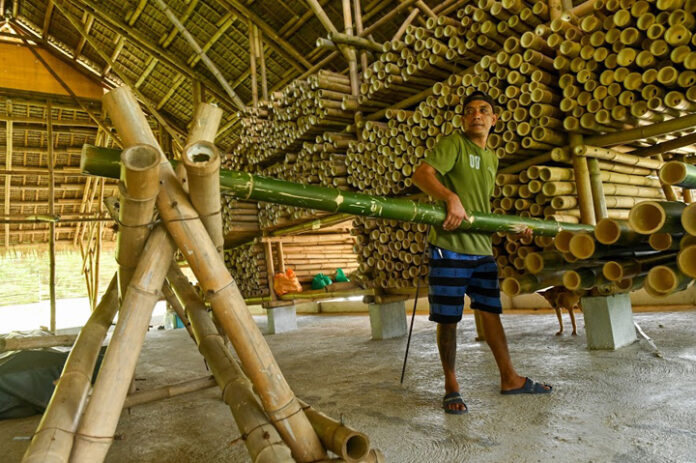THE Department of Trade and Industry (DTI) and other government agencies are set to spend nearly P2 billion until next year to develop the bamboo industry.
DTI Secretary Ramon Lopez said at the North Luzon and Central Luzon Virtual Bamboo Summit on Monday that P594 million worth of projects are slated in 2021 and P1.4 billion next year. In 2020, the same agencies implemented P441 million worth of projects related to this goal.
Lopez said the DTI alone implemented P15 million worth of bamboo-related projects last year in 11 regions, bulk or P9 million of which was allocated to north and central Luzon. The agency will be completing P41 million worth of projects in 12 regions this year and P545 million in 13 regions in 2022.
The government-run Development Bank of the Philippines, he added, will be opening a P10-billion lending facility each in 2021 and 2022 for would-be bamboo farmers.
Last year, Lopez said the agencies planted 16,687 hectares (ha) of bamboo across the country, which is a little beyond the target of 16,687 ha. The targets for 2021 and 2022 are 23,671 ha and 40,000 ha, respectively.
“By planting more bamboo trees to increase the supply of bamboo, we aim to create a source of livelihood for our people, especially in communities in the countryside near the areas where bamboo is being planted,” Lopez said.
The Trade chief said that bamboo can support the input requirements of the micro, small and medium enterprises (MSMEs), particularly those manufacturing bamboo-based finished goods. Lopez explained that the bamboo industry “has strong potential for business,” given its wide application, including reengineered bamboos that are used as bamboo panels.
These bamboo panels, Lopez said, are flat like plywood but stronger. “Our country’s furniture-makers can take advantage of these bamboo-based materials and reengineered bamboo for their products, which will give them a higher value and earn them more profit,” he said, noting that there is a current demand for bamboo-based products.
Through DTI’s shared services facilities program and other initiatives, the department has aided bamboo agri-business and bamboo processing to cooperatives, MSMEs, associations and local government units. In addition, Lopez said DTI conducted training to help develop value-add for bamboo products.
“We would also like to point out that a strong Philippine bamboo industry focusing on sustainable development can also contribute towards our country’s post-pandemic recovery. Thus, let’s make bamboo a significant force in our economic, environmental, social, and cultural lives,” the DTI chief added.
Last August, the Philippine Bamboo Industry Development Council, which is chaired by the DTI, formulated a plan to operationalize the Bamboo Industry Roadmap 2020-2022.
Image credits: Base Bahay Foundation Inc.
Read full article on BusinessMirror



